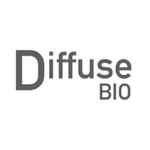Companies

We write software for diagnostic laboratories. We provide the following: - Cashier system - Booking system - Integration with clinical medical instruments (hematology analyzers, chemistry analyzers) - Integration with imaging equipment (DICOM enabled x-rays, ultrasounds) - Automatic generation of test results - Secure sharing of test results with employers and manpower agencies (to help them meet country-specific regulatory requirements)

Daybreak offers comprehensive and clinically-validated online mental health services designed for youth, like teletherapy, psychiatry and digital education. We partner with schools and pediatric groups to make access to services easy, and strive to deliver zero cost to the end consumer through insurance and government funding.

Medical practices struggle with front desk shortages and nonstop admin work—ringing phones, scheduling mishaps, intake errors, and billing headaches. The result? Overworked staff and less time for patient care. Decoda Health’s AI platform takes over 80% of these tedious tasks, handling calls, scheduling, and payments while alerting staff only when necessary. By reducing chaos and streamlining operations, teams can focus on what truly matters—providing exceptional patient care.

Diffuse is building generative AI for protein design. Our mission is to build AI systems that engineer new and useful proteins with unprecedented control and accuracy. Our team has been behind breakthroughs in AI protein design for the past 7 years, including the first experimental validation of AI-generated proteins and diffusion models for protein structure and sequence.

In the global fight against breast cancer, Digistain stands at the forefront, offering a beacon of hope to millions. Our journey began at Imperial College London, where ground-breaking research gave birth to a technology poised to revolutionize breast cancer diagnostics. The Challenge: Every year, breast cancer affects 2.3 million individuals globally. Post-surgery, 60% of patients are advised to undergo genomic testing, an expensive and time-consuming process monopolized by a single lab in the U.S., costing around $4,000 and taking nearly two months. Consequently, only 5% undergo this vital testing. The rest, unable to access this crucial diagnostic step, often resort to chemotherapy—a treatment that, in one in four cases, is more harmful than the cancer itself. Our Solution: Digistain addresses this critical gap. Our technology transforms the current diagnostic process by enabling hospitals to analyze patient samples in-house using existing equipment, supplemented with our innovative technology. This approach offers near-instantaneous decision-making data, a stark contrast to the existing month-long waits. Central to our technology is a proprietary algorithm that identifies a unique spectral fingerprint of the tumour in the infrared spectrum, providing a personalized risk score. This score guides oncologists in selecting the most effective, individualized treatment plans, potentially reducing unnecessary chemotherapy and its harmful side effects. Impact and Potential: Our solution not only challenges the status quo in technology but also in accessibility. In a landmark government-commissioned study, Digistain demonstrated clinical evidence on par with the market leader, but at a fraction of the cost and time. Already making waves in clinical practice globally, with insurance reimbursement at leading cancer centers, our technology represents a paradigm shift in cancer care. Recognized by the Institute of Physics, the Royal Society, and Imperial College for our innovative contributions, and supported by entities like the NHS, Y Combinator, and the European Investment Bank, Digistain is more than a company—it’s a movement towards equitable, effective cancer treatment. With the potential to democratize access to life-saving diagnostics, Digistain is not just envisioning a better future for cancer patients; we are actively creating it.

We make it easy for anyone in India to access healthcare over Zoom, Meet, or WhatsApp. We provide care in 11 local languages. For every appointment, we provide a concierge who manages all logistics for the patient & handles the back-office work for doctors. With this, we have cracked the code to make telehealth work in India.

Dodo develops AI employees for specialty clinics, starting with veterinarians, fine-tuned on industry-specific knowledge and trained on protocols taken directly from employee manuals and playbooks, which often span multiple binders. Clinics hire Dodo's labor-as-a-software to handle front and back-office tasks, enabling clinics to provide 24/7 service. Dodo answers calls, sends medical records, and refills prescriptions—fully autonomously, with no human in the loop.
The DoseDr mobile app gives diabetics better control over their disease by helping them adjust their insulin doses between doctor visits. They connect patients to a doctor, who can help them immediately when an issue arises. No appointment necessary, and it's free! Patients are welcome to invite their current doctor to join DoseDr.

DrChrono develops the essential platform and services for modern medical practices to make care more informed, more interactive, and more personalized. The open platform powers telehealth, electronic health record (EHR), practice management, medical billing, and revenue cycle solutions for physicians and patients, and is fully extensible via a robust API and marketplace of applications and services. The platform is used by thousands of physicians and millions of patients, and is facilitating millions of patient appointments and is processing billions of dollars in medical billing. For more information about DrChrono, visit www.drchrono.com

Who we are? We write software that understands the activity of individual cells as opposed to all cells. This approach is novel because we are no longer looking at average signals and can be precise. It is like a police person trying to identify the speeding car, they won’t find it if they look at all the cars at once, rather they need to look at the speed of each individual car. This is the beauty of single cell genomics, we can now identify that speeding car. Why now? The biggest barrier for entry into the single cell genomics market are cost and data analysis. To that end, we have reduced the cost by 10-fold and built the computational infrastructure for scalability. Although single cell sequencing has only been around for about five years, we come from one of the top single cell genomics labs and were the first to process and analyze millions of immune cells. Thanks to our software solutions, we have been able to bring big data solutions to the immune system. Where are we and where are we going? We have generated a database of over 1 million immune cells spanning healthy, cancerous, and autoimmune immune cells and are growing through paid partnerships. Harnessing out database and ML software, we can take a data-centric approach for better target discovery. Fortunately, as our database continues to grow, our models will continue to learn for more precise, unbiased, and automated single cell genomics. Thank you!













